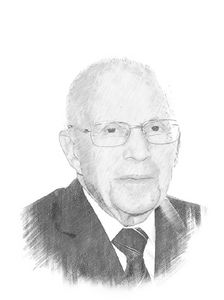Rudolf Kraßer was born in Fürth and attended the Oberrealschule there. After graduating from high school in 1952, he decided to study law at the Ludwig-Maximilians-Universität (LMU) in Munich on a scholarship from the Maximilianeum Foundation. After passing his law exams, he obtained his doctorate in 1960 under Eugen Ulmer, the founding director of the Max Planck Institute for Foreign and International Patent, Copyright and Competition Law - as the Max Planck Institute for Innovation and Competition was then known - with a comparative law dissertation on the legal status of various national patent offices. In his subsequent time as a research assistant at the Institute, he was a key pillar of the project on unfair competition in Europe. He wrote the volume on French unfair competition law in 1967. In 1970, Rudolf Kraßer also completed his habilitation with Eugen Ulmer with a comparative law thesis on the protection of contractual rights against interference by third parties under tort and unfair competition law.
The Technical University of Munich (TUM) appointed Rudolf Kraßer as a full professor in 1973, where he devoted himself primarily to the legal training of industrial engineering graduates at the former Faculty of General Sciences. His academic work comprises around 100 publications on the protection of intellectual property rights alone, a considerable number of which resulted from projects at the Institute. Particularly noteworthy is his work on patent law, now continued by Christoph Ann, which is regarded as a leading textbook and handbook and has earned Rudolf Kraßer a reputation as the doyen of patent law in the German-speaking world.
Rudolf Kraßer was appointed to the Max Planck Institute for Foreign and International Patent, Copyright and Competition Law as an External Scientific Member in 1974. To this day, he attends meetings of the Institute in an advisory capacity, most recently on 17 June 2024 at the meeting of the Board of Trustees.
He was involved in many committees and organizations and received numerous awards and honours. These reflect his outstanding achievements and his high standing in the scientific community. He is regarded as a shining example of true scientific excellence. This is combined in a very likeable way with his reserved manner, which never pushes his own person to the fore. His written and spoken word is convincing.
The Institute would like to thank Rudolf Kraßer for his many years of support and active involvement in many of the Institute's research projects, which did not begin with his appointment as a Foreign Scientific Member 50 years ago. We wish him all the best on his 90th birthday!

